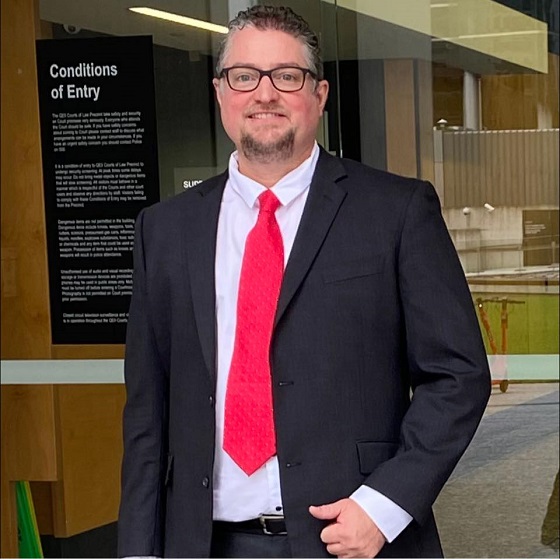espionage
CSIS warned Health Canada of “insider threat” from Wuhan Institute-tied scientist Dr. Qiu Seven Months Before Lethal Ebola Shipped to China
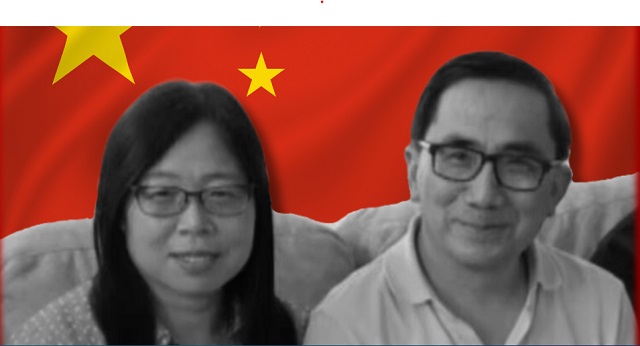

Sam Cooper
In an explosive admission, Parliament’s Canada-China Committee has confirmed that Canada’s spy agency, CSIS, issued a direct and unheeded warning to senior health officials in August 2018, raising concerns about “insider threat activities” linked to Dr. Xiangguo Qiu and her husband, Keding Cheng.
This alert, delivered seven months before the couple’s network—with connections to the highest levels of Chinese biological weapons research—coordinated the shipment of live Ebola and Henipah virus samples from Canada’s high-security National Microbiology Laboratory (NML) to the Wuhan Institute of Virology (WIV), highlighted risks posed by their continued access to sensitive materials.

“CSIS held a briefing for personnel responsible for security at [Public Health Canada],” in August 2018 that “focused on foreign interference and included possible indicators of insider threat activities, as well as other security risks,” according to CSIS’s submission to the Committee. In CSIS’s presentation, “student programs were identified as being one of these possible threat vectors,” prompting “[Public Health Canada] to flag two scientists to CSIS, Dr. Cheng and Dr. Qiu,” the Committee report, released Tuesday, states.
Despite these explicit warnings, no immediate restrictions were placed on Qiu, Cheng, or their Chinese students’ access to Canada’s sensitive research materials. In December 2018, Public Health Canada authorized a fact-finding investigation into the concerns, but the delayed response effectively allowed them to continue their operations, further endangering Canada’s security.
Please support this important journalism.
Consider becoming a free or paid subscriber of The Bureau.
The Committee report also finds—like the ongoing Hogue Commission—that Justin Trudeau’s government, including senior bureaucrats and ministers, showed a reluctance to act on or even acknowledge urgent alerts from CSIS, exposing a stark divide between CSIS’s view of Chinese threats and Trudeau’s.
Dr. Qiu’s associations with China’s military and scientific programs had deep roots. She began her work at the Winnipeg NML in 2003, followed by her husband’s employment there in 2006.
As early as 2013, Keding Cheng filled out an application for the PRC’s “Science and Technology Innovation Talent Program of Henan Province,” requiring applicants to “passionately love the socialist motherland [PRC]” and maintain Chinese citizenship.
By 2016, Dr. Qiu was nominated for an award by a senior military official from the Chinese Academy of Military Medical Sciences, recognizing her collaborations with Major-General Chen Wei, a leading figure in China’s biological weapons research. CSIS investigations revealed that Dr. Qiu and Major-General Chen collaborated on multiple research projects dating back to 2012.
Dr. Qiu’s use of Canada’s facilities to benefit China was well recognized in Beijing. An award nomination for Dr. Qiu noted that she “used Canada’s Level 4 Biosecurity Laboratory as a base to assist China to improve its capability to fight highly pathogenic pathogens … and achieved brilliant results.”

In October 2016, Dr. Qiu co-authored a paper with Major-General Chen and other scientists affiliated with the Chinese Academy of Military Medical Sciences, further deepening her connection to Chinese military research. By this time, Qiu had also been recruited into China’s Thousand Talents Program—a PRC initiative aimed at harnessing international scientific expertise—and these affiliations, conspicuously absent from her Canadian curriculum vitae, made her a person of interest to CSIS, especially as her work increasingly intersected with China’s biosecurity research.
Concerns over Qiu and Cheng’s activities continued to mount at the NML. In October 2018, Cheng, accompanied by a restricted visitor, attempted to exit the lab with two Styrofoam containers, claiming they were empty. By January 2019, Cheng breached security again by using another employee’s passcode to enter the NML.
On March 23, 2019, Public Health Canada received its fact-finding report, which advised administrative investigations into Qiu and Cheng. Yet, only days later, on March 31, live samples of Ebola and Henipah viruses were shipped from the NML to the WIV, highlighting critical lapses in Canada’s security protocols.
In response to these revelations, the Committee’s report outlines recommendations to safeguard Canada’s scientific resources from similar threats in the future. Chief among these is a call for the Government of Canada to immediately terminate all research collaboration with PRC-affiliated entities in sensitive fields, such as artificial intelligence, aerospace, and advanced digital infrastructure.
A key recommendation is to designate the Wuhan Institute of Virology and the Thousand Talents Program as Named Research Organizations under Public Safety Canada, subjecting them to enhanced scrutiny and restricted partnerships due to their potential security risks. Furthermore, the Committee suggests that Canada explore constitutionally compliant legal measures to prevent individuals under national security investigation from leaving the country. Despite RCMP investigations, the couple was able to leave Canada.
As investigations mounted, irregularities in the WIV shipment were noticed, and it was only in January 2021 that Public Health Canada terminated the couple’s employment. Nathalie Drouin, Deputy Clerk of the Privy Council, acknowledged with evident understatement, “it is a timeline that needs to be looked at.” However, Richard Fadden, the director of CSIS from 2009 to 2013, testified that the timeline “was too long” and the viral shipment to WIV “should not have happened.”
In his opinion, the incident at the Winnipeg NML revealed a deep cultural issue long present in Canada’s federal administration. “I don’t think the culture in this particular lab and in large parts of the public service had caught up with the change in facts as we understand China,” Fadden said. His comments emphasize a notable gap between CSIS’s understanding of the Chinese threat and that of Trudeau’s administration.
“This gap in the understanding of risk between national security and science sectors at the federal level, particularly with regard to the threat to Canadian interests posed by actions of the Chinese Communist Party (CCP), was illustrated in testimony before the Special Committee,” the report says.
On one hand, Minister of Health Mark Holland noted that “countries such as China are implicating themselves in our domestic processes in a way that would have been unimaginable just five years ago” and are “potentially willing, in this instance, to use pathogens that threaten humanity in order to advance their geopolitical agenda.” But Fadden pointed out that “CSIS was already aware of concerns about the PRC’s actions,” noting that since Xi Jinping’s rise to power in 2013, the institutionalization of espionage and interference techniques by the CCP has intensified.
Adding to these concerns is the Trudeau government’s controversial denial of access to related records, noted by the report, raising questions of transparency and whether there may have been a cover-up of key details surrounding the case.
The Bureau is a reader-supported publication. To receive new posts and support my work, consider becoming a free or paid subscriber.
Business
How the federal government weaponized the bank secrecy act to spy on Americans

A Congressional investigation committee released an extremely concerning report this week entitled: “FINANCIAL SURVEILLANCE IN THE UNITED STATES: HOW THE FEDERAL GOVERNMENT WEAPONIZED THE BANK SECRECY ACT TO SPY ON AMERICANS” that details how the US government has been monitoring American citizens through bank transactions, with an emphasis on citizens who have expressed conservative viewpoints.
“Financial data can tell a person’s story, including one’s “religion, ideology, opinions, and interests” as well as one’s “political leanings, locations, and more,”’ the report begins. This investigation began after a whistleblower who happens to be a retired FBI agent alerted Congress that the Bank of America (BoA) voluntarily provided the Biden Administration information on customers who used a credit or debit card in Washington, D.C., around the January 6 protests. The new report has revealed that federal agencies have been working “hand-in-glove with financial institutions, obtaining virtually unchecked access to private financial data and testing out new methods and new technology to continue the financial surveillance of American citizens.”
As I’ve said countless times, “money laundering” is ALWAYS the excuse for why the government must track and monitor our financial transactions. The Bank Secrecy Act (BSA) E-Filing System is a system for financial institutions to file reports required by the BSA electronically. By law, the BSA requires businesses to keep records and file reports to help prevent and detect money laundering. This is how the Biden Administration is attempting to disregard privacy and weaponize financial institutions.
US intelligence agencies searched through records for terms like “Trump” and “MAGA” to target Americans who they believed may hold “extremist” views. The agencies searched for Americans who purchased religious texts, such as the Bible, and also labeled them extremists. Anyone expressing disdain for the COVID lockdowns, vaccines, open borders, or the deep state were placed on a watchlist. Again, the BSA was used as a premise to pull transactions placed by the individuals on this list.
As explained by the investigative committee:
“With narrow exception, federal law does not permit law enforcement to inquire into financial institutions’ customer information without some form of legal process.9 The FBI circumvents this process by tipping off financial institutions to “suspicious” individuals and encouraging these institutions to file a SAR—which does not require any legal process—and thereby provide federal law enforcement with access to confidential and highly sensitive information.10 In doing so, the FBI gets around the requirements of the Bank Secrecy Act (BSA), which, per the Treasury Department, specifies that “it is . . . a bank’s responsibility” to “file a SAR whenever it identifies ‘a suspicious transaction relevant to a possible violation of law or regulation’”11 While at least one financial institution requested legal process from the FBI for information it was seeking,12 all too often the FBI appeared to receive no pushback. In sum, by providing financial institutions with lists of people that it views as generally “suspicious” on the front end, the FBI has turned this framework on its head and contravened the Fourth Amendment’s requirements of particularity and probable cause.”
Under this premise, anyone who held a viewpoint that opposed the Biden Administration was considered a “suspicious” individual who required monitoring. The Treasury Department’s Financial Crimes Enforcement Network created a database to carefully watch potential dissenters. Over 14,000 government employees accessed the FinCEN database last year and conducted over 3 million searches without a warrant. In fact, over 15% of FBI investigations during 2023 has some link to this database. It is estimated that 4.6 million SARs and 20.8 million Currency Transaction Reports (CTRs) were filed in the last year.
The committee noted that the government is incorporating AI to quickly search the web for “suspicious” Americans:
“As the Committee and Select Subcommittee have discussed in other reports, the growth and expansion of AI present major risks to Americans’ civil liberties.211 For example, the Committee and Select Subcommittee uncovered AI being used to censor “alleged misinformation regarding COVID-19 and the 2020 election . . . .”212 Those concerns are not hypothetical. Some AI systems developed by Big Tech companies have been programmed with biases; for example, Google’s Gemini AI program praised liberal views while refusing to do the same for conservative views, despite claiming to be “objective” and “neutral.” With financial institutions seemingly adopting AI solutions to monitor Americans’ transactions, a similarly biased AI program could result in the systematic flagging or censoring of transactions that the AI is trained to view as “suspicious.”
This is extremely troubling and goes beyond government overreach and violated numerous Constitutional protections. The government effectively transformed banking institutions into spy agencies, and anyone who could potentially hold a view that did not fit the Biden-Harris agenda has been treated as potential terrorist. It is completely insane that someone could be seen as an extremist for purchasing a religious text or purchasing a firearm. This is discriminatory, predatory behavior that puts millions of lives at risk. Think of governments in the past who have rounded up names of dissenters based on religion or ideology. They claim they are merely observing us, but the goal is to silence us.
The committee said their investigation has just begun as they will not allow the government’s abuse of financial data to go unchecked. Furthermore, they are concerned that these warrantless searches can lead to widespread debanking practices where the government can easily block any dissenter from participating in society by crippling them financially. This is yet another reason why governments want to push banks to create CBDC so that they can punish citizens with a simple click of a button.
espionage
Three Steps to Fixing the FBI: Interview with Whistleblower Colleen Rowley
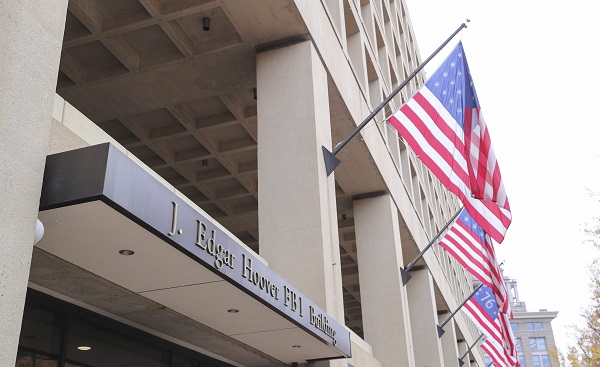
From Matt Taibbi of Racket News
Depoliticization, decentralization, and transparency are all achievable goals
On August 13, 2001, 33-year-old French citizen Zacarias Moussaoui paid $6,800 in $100 bills to train on a 747 simulator at the Pan-Am International Flight Academy in Eagan, Minnesota. A retired Northwest Airlines pilot named Clarence “Clancy” Prevost thought Moussaoui’s behavior was odd for someone with no pilot’s license and told his bosses as much. When they said Moussaoui had paid and they didn’t care, Prevost said, “We’ll care when there’s a hijacking and the lawsuits come in.”
The company went to the FBI and on August 16, in what should have been one of the biggest arrests in the history of federal law enforcement, Moussaoui was picked up on an immigration violation. Agents on the case wanted permission to search Moussaoui’s belongings, with one asking superiors as many as 70 times for help in obtaining a warrant. The situation grew more urgent when the French Intelligence Service sent information that Moussaoui was connected to Islamic radicals with ties both to Osama bin Laden and the Chechen warlord Khattab, and that even within this crowd, Moussaoui was nicknamed “the dangerous one.”
Coleen Rowley, the Chief Division Counsel for the Minneapolis Field Office, absorbed agents’ concerns quickly and was aggressive in asking superiors to seek a Foreign Intelligence Surveillance Act (FISA) warrant to investigate further. One of the goals was a look at Moussaoui’s computer, as agents believed he’d signaled he had “something to hide” in there. But unlike the former Northwest pilot Prevost, whose superiors trusted his judgment and escalated his concerns, Rowley and the Minneapolis field office were denied by senior lawyers at FBI Headquarters. The Bureau was sitting on the means to stop 9/11 when the planes hit the towers.
This story is actually worse than described, as Rowley made clear in what became a famous letter she wrote to then-Director Robert Mueller the following May. “Even after the attacks had begun,” she wrote, “the [Supervisory Special Agent] in question was still attempting to block the search of Moussaoui’s computer, characterizing the World Trade Center attacks as a mere coincidence with Misseapolis’ prior suspicions about Moussaoui.”
While the Bureau blamed 9/11 on a lack of investigatory authority, the actions of the Minnesota office showed otherwise. Rowley’s decision to confront Mueller with a laundry list of unnecessary bureaucratic failures made her perhaps the FBI’s most famous whistleblower. Her letter excoriated the Bureau’s Washington officeholders for failing to appreciate agents in the field, and for implicitly immunizing themselves against culpability.
“It’s true we all make mistakes and I’m not suggesting that HQ personnel in question ought to be burned at the stake, but, we all need to be held accountable for serious mistakes,” she wrote, adding: “I’m relatively certain that if it appeared that a lowly field office agent had committed such errors of judgment, the FBI’s [Office of Professional Responsibility] would have been notified to investigate and the agent would have, at the least, been quickly reassigned.”
The relentless and uncompromising style of Rowley’s letter made it a model for whistleblower complaints. As the administration of George W. Bush hurtled toward war in Iraq, Rowley was made a cultural and media icon, occupying the center spot on Time magazine’s “Persons of the Year” cover in January, 2003.
For these reasons and more I was pleased to see after running articles earlier this week about the FBI and the reported choice of Kash Patel as Director that Coleen commented under the second one. I’d reached out to her previously after four whistleblowers came forward about questionable post-J6 investigations, and with the choice of Patel and rumors of a major housecleaning of the Bureau’s Washington office, similar issues seemed in play.
“A large majority of FBI agents always held Headquarters in contempt, knowing that it only attracted the losers, brown-nosing careerist political hacks who wanted to climb the ladder to go thru the ‘revolving door’ at age 50 to make their corporate millions,” she wrote. “The best, most competent agents typically refused to sacrifice their integrity and their families to climb the ladder in that Washington, DC cesspool.”
Part of my personal frustration with the FBI story is that the audiences that cared about its Bush-era offenses have largely turned a blind eye to its issues since Donald Trump’s rise to power, even though many problems are similar. Coleen, who manages the tough trick of maintaining the respect of both liberal and conservative audiences, is the perfect person to help bridge that gap. I reached out to her earlier this week and we talked about Patel, the long-term challenges facing the Bureau, and possible fixes.
MT: Kash Patel made public comments about closing the Washington headquarters and turning it into a “museum of the deep state.” He added he’d then “take the 7,000 employees that work in that building and send them across America to chase down criminals.” Does that make any sense?
Coleen Rowley: I hate to go to bat for Kash Patel because I’ve been disappointed by all of these people in Washington. It’s such a cesspool. I really don’t think anybody can keep their head above it. So I hate to really laud him, but I do think he is completely correct on three or four things, and they’re major things. And he’s getting smeared for the thing that he’s most correct about. FBI headquarters: the FBI itself wants to take that down.
MT: How?
Coleen Rowley: Agents hate the J. Edgar Hoover building on Philadelphia Avenue. They’ve been talking about moving forever, all the agents. It was considered a matter of pride to not stoop to go to headquarters. This goes way back. Everyone knew that the ones who were going to headquarters were the ones trying to climb the ladder. They didn’t care about cases. They would always do what’s politically correct. And so they were all made fun of. In fact, Jules Bonavolonta wrote a book about how bad headquarters was.
MT: Is it The Good Guys?
Coleen Rowley: That sounds right. Everyone in the FBI knew that the people in that building were corrupted, because they’d decided to sacrifice themselves to go to headquarters in order to become somebody, by managing. And then especially in later years, the real incentive was to go through that revolving door to make a lot of money. And that’s the Strzoks and McCabes, and all those people.
MT: You’ve talked in the past about a dichotomy between agents in the field and the politically-minded managers at headquarters. Why is that divide harmful?
Coleen Rowley: Because the real work is done in the field. Headquarters was just there to help you do your work. Well, the 9/11 story is a perfect example. I wrote another op-ed in the Los Angeles Times called WikiLeaks and 9/11: What If? It was about this whole idea that’s very counterintuitive to what people are brainwashed to think, but sharing information is the key. The 9/11 Commission even said that if they had just shared information between agencies and then with the public, 9/11 would not have happened.
MT: They said there was a “failure to connect the dots,” I think.
Coleen Rowley: I was asked this when I testified to the Senate Judiciary about siloing and how the information, when it goes up the pipeline, gets convoluted and bottlenecked at headquarters because they want to keep power for themselves there. They really don’t want to let the field and the agents do the job. They want to have so-called oversight. I mean, that’s the good term for it, oversight, but it’s worse than that. They just want to keep the power there.
MT: You wrote that one of the things you liked was the possibility that Patel might decentralize the Bureau. What might that entail?
Coleen Rowley: They could delegate down FISA, and I’m not the first person to have this idea. Legal scholars say one of the best ideas to avoid this bottlenecking of information that occurs at headquarters is for the FISA judges not to have to travel to one particular SCIF [Sensitive Compartmented Information Facility] in Washington. Keep the judges actually out in the field.
MT: I didn’t realize that.
Coleen Rowley: Yeah. They have SCIFs all over the country. So it’s not a problem. And it could be easily delegated down. Why does every request have to go through headquarters and the DOJ, except for control reasons? In all other matters, like criminal Title IIIs, you go straight to a judge. Some judges, they’re going to have differing opinions on things. And maybe a judge, every once in a while, would say no to a Title III.
MT: But that happens anyway, doesn’t it?
Coleen Rowley: Yeah. Very seldom with FISA, but yes. With a FISA application, they’re usually a hundred pages long and there’s tons of probable cause, and every Title III I ever read was beyond reasonable doubt by the time a judge saw it, to be honest. But this travesty that occurred with FISA is because it’s all bottlenecked up there for control in Washington DC, and with a handful of people who don’t want to share this information. I mean, I’ve got so many stories. They won’t even share the Moussaoui story with other offices even after 9/11.
MT: What?
Coleen Rowley: Yeah, because they’re trying to cover it up… It’s a long story but the desire for control at headquarters is a huge thing.
MT: The last time we talked, you might’ve mentioned the suggestion of having more of the Bureau’s top officials gain experience in the field. Wouldn’t that give them more grounding in what’s actually going on in the world? It seems like that’s a problem.
Coleen Rowley: These supervisors at headquarters learn bad habits. You try to “punch your ticket.” That’s the terminology. You try to go there for your year and a half. You hate it, but you do it. You have to bend over and please the bosses to get through that year and a half in order to “punch your ticket” and climb the ladder. The risk aversion is incredible. As a whole, the most competent and best investigators, and this goes to Kash Patel, he gets kudos for actually having investigated something. He was a public defender for seven years, so he has seen things from the other side of an investigation. Meanwhile, by contrast, Comey came out of Lockheed, and I forget where Wray came from [eds. note: Wray worked at King and Spaulding, earning $14 million advising clients like Chevron, Wells Fargo, and Johnson & Johnson], but they came out with millions in their pockets. What is their background? Did they ever actually investigate? Did they ever actually even work in criminal justice? No. So they are political creatures. Not case-makers. Kash at least has some experience.
MT: Seemed like he did a good job with the Nunes memo…
Coleen Rowley: Yes. Whoever did the investigation – I doubt it was solely him – but yeah, they did a great job on that because controlling the press and everything. It’s sad though that it hasn’t reached a lot of the public after all this time. I think it’s important because between the call for transparency… The funny thing is Patel will be all for the whistleblowers of the FBI that you called me about before, the ones that were chagrined about all the stuff they had to do after January 6th. But now he’s going to be against anybody being a whistleblower if he abuses power? It’s always that way. But that call for transparency is key. That’s a test. Then the debunking of Russiagate, and how the FBI got so politicized. And then thirdly, the decentralization of the FBI, so that you take that power out of Washington, DC, where it’s so close to corruption and revolving doors.
MT: There’s one more thing that I wanted to ask about, because you mentioned it in a piece you sent to the New York Times about Comey before he was named Director. You talked about the tactic of trying to “incapacitate” suspects who can’t be prosecuted. This goes along with that issue of “disruption” or “discrediting.” Does the Bureau need to get back to making cases as opposed to these extrajudicial techniques? Can Patel do that?
Coleen Rowley: All that goes back to COINTELPRO.
MT: Right.
Coleen Rowley: One of the things I would hope for, which I haven’t seen it mentioned anywhere, is that he could do something to reduce the entrapment-type cases that just burgeoned with Mueller. Talk about hypocrisy. He went to the ACLU and gave a speech about civil liberties. The whole ACLU stands up and applauds him, all while he is starting those entrapment cases. I was still in the FBI. I retired a year later, took my pension and left. I was like, oh, this is so wrong. They hired these con artist informants to infiltrate Muslim groups. There are books written about this now. [On a recent radio show] I said it’s possible that yes, maybe some of these tactics actually did prevent some nut from going further. You can’t say that isn’t true. On the other hand, the numbers here of cases that were based on the FBI telling vulnerable people, “Look, we can get you a bomb. We can get you this.” And then all of a sudden, when the guy looks like he’s going to press the button on it, that’s when they have the take-down.
It’s such a formula and you’re not accomplishing anything if you’re creating crime. We have so much crime in this country now. If I was Kash Patel, that’s what I would be saying. When they asked me those questions, I’d say, “We’ve got so much crime. It’s all over the country. Why can’t we have more agents out in the field working cases and trying to reduce the violence and the crime and the drug dealing, et cetera?” I think that would be a real winner politically for him to say.
MT: It sounds like you think it’s possible for him to fix some things. But we shouldn’t set ourselves up for disappointment.
Coleen Rowley: I’ve just gotten so cynical. I don’t put hope in anything or anybody anymore. Obama… even going way back, I don’t put hope out with anybody… But if he gets support on some of these things, the call for transparency, depoliticization and decentralization, there’s a chance.
MT: Let’s hope. Thank you!
Please enjoy Racket News. For the full experience, become a paying subscriber.
-
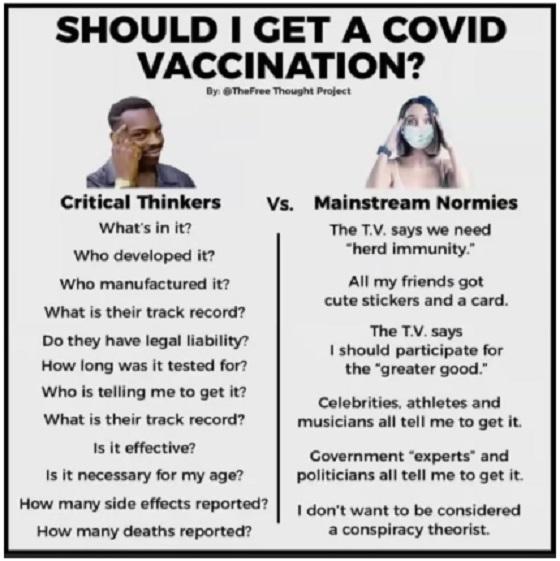
 Brownstone Institute2 days ago
Brownstone Institute2 days agoA Potpourri of the World’s Unexposed Scandals
-
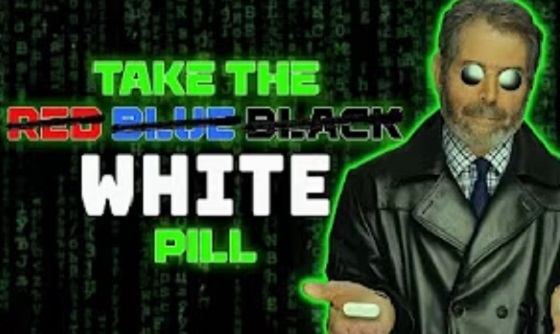
 Economy1 day ago
Economy1 day agoThe White Pill: Big Government Can Be Defeated (Just Ask the Soviet Union)
-
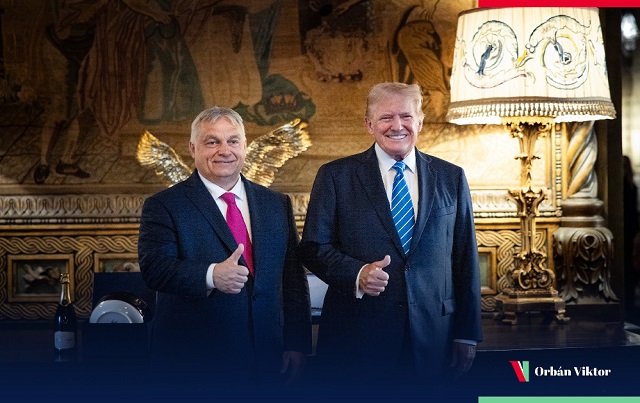
 conflict1 day ago
conflict1 day agoTrump has started negotiations to end the war in Ukraine
-

 Alberta14 hours ago
Alberta14 hours agoFederal taxes increasing for Albertans in 2025: Report
-
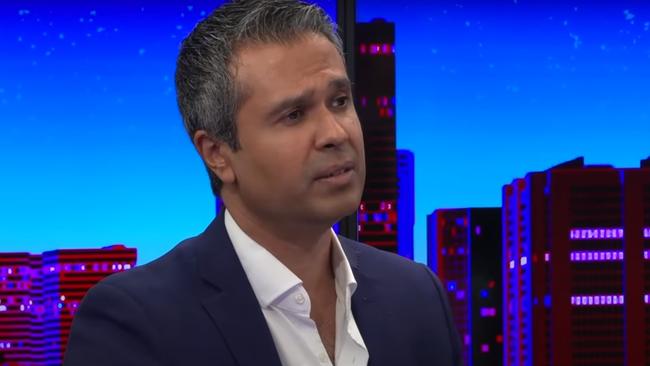
 COVID-191 day ago
COVID-191 day agoEsteemed UK Doctor pleads with governments to cancel COVID-19 vaccines
-

 COVID-1913 hours ago
COVID-1913 hours agoChildren who got COVID shots more likely to catch the virus than those who didn’t, study finds
-

 Business1 day ago
Business1 day agoThe CBC gets $1.4 billion per year, but the Trudeau government wants to give it more
-
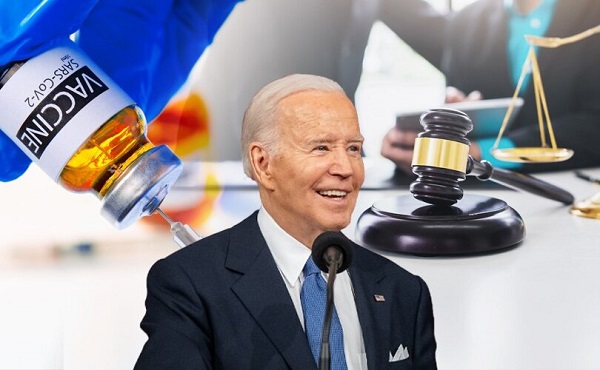
 COVID-192 days ago
COVID-192 days agoBiden HHS extends immunity for COVID shot manufacturers through 2029









